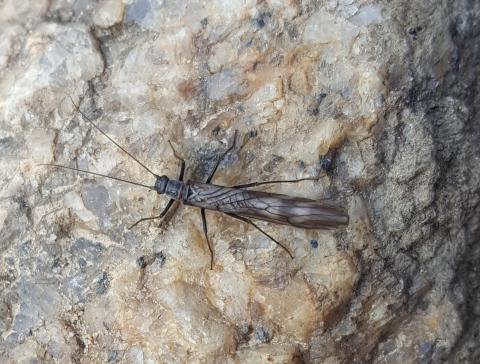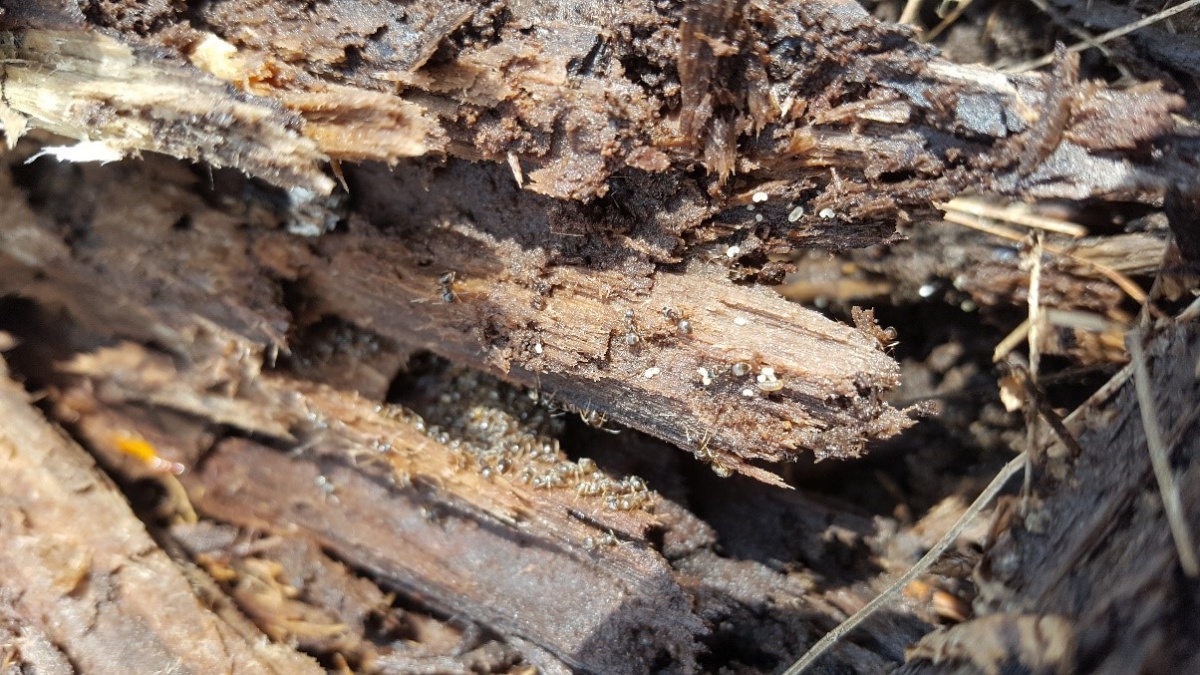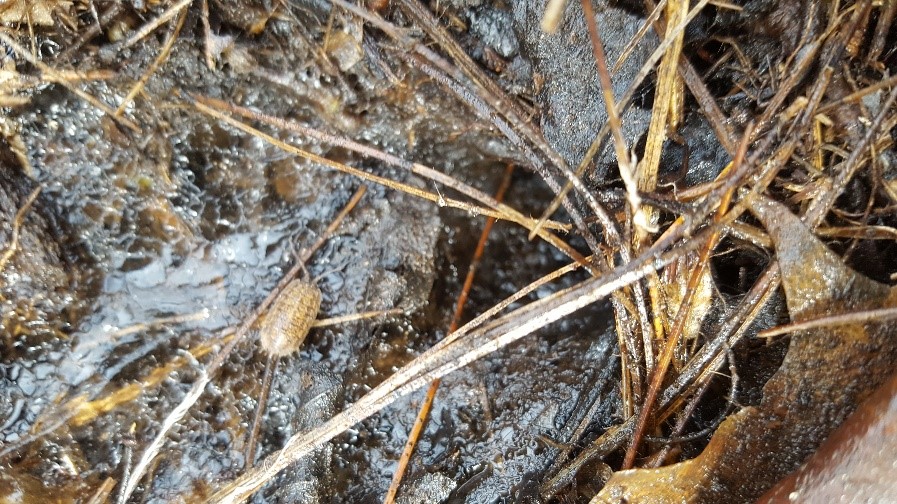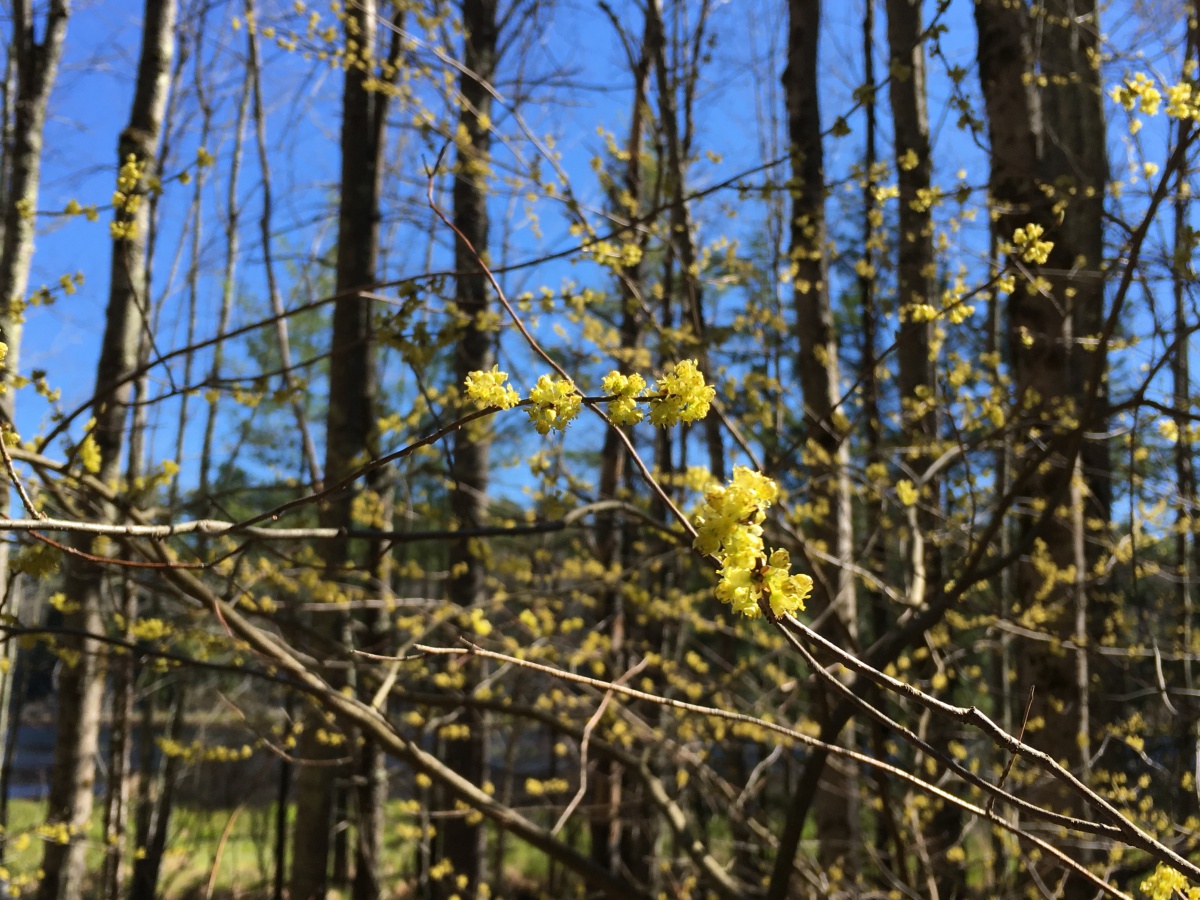Signs of Spring: Insect Edition

Insects are cold blooded, so they rely on the temperatures around them to maintain their body temperature. This means that freezing temperatures knock insects out cold – entomologists call it a “chill coma”. When temperatures get up in the 50’s, insects will leave their overwintering habitats to seek out their first meal of the season. Even warmer temperatures are often necessary for insect flight, so imagine these bugs shuffling to find their breakfast as you would shuffle to find your first cup of coffee in the morning.

When there is snow on the ground, that means the ground is frozen and overwintering bugs are still snoozing.
In these early months of spring, where can we find insects starting out their year?
Under rocks and logs: This is where insects may still be waiting out winter conditions. Soil temperatures stay pretty steady, no matter what the air temperatures. That makes it a safe place to wait out dangerously cold temperatures until food starts appearing in the spring.

Around dead and dying plants: Look for rich sources of organic matter, like dead tree trunks, under leaf litter. These are great sources of food for the fungi and other organisms that insects eat early in the season.

This critter has many common names – pill bug, sow bug, wood louse, roly poly...but it’s not an insect. It’s more closely related to crabs and lobsters and is the only terrestrial crustacean.
Near the first flowering plants of the year: wild mustards, flowering trees, and other flowering plants provide an excellent source of carbohydrates in nectar and protein in pollen.

Spicebush ( Lindera benzoin ) in flower.
Ready to go out looking for some insect activity?
Check out this list of trails that are ideal for early season insect observations:
- Dora N. Spalding Nature Trail - Jaffrey
- Distant Hill Nature Trail - Alstead and Walpole
- Silk Farm Wildlife Sanctuary - Concord
- Magalloway River Trail - Wentworth's Location
- Ossippee Pine Barrens Preserve - Madison
- Lamprey River Floodplain - Epping
Find a trail near you!
